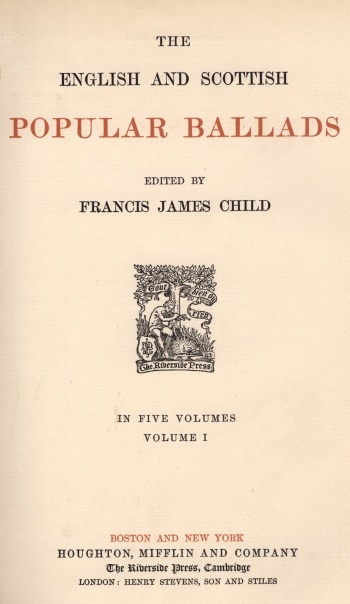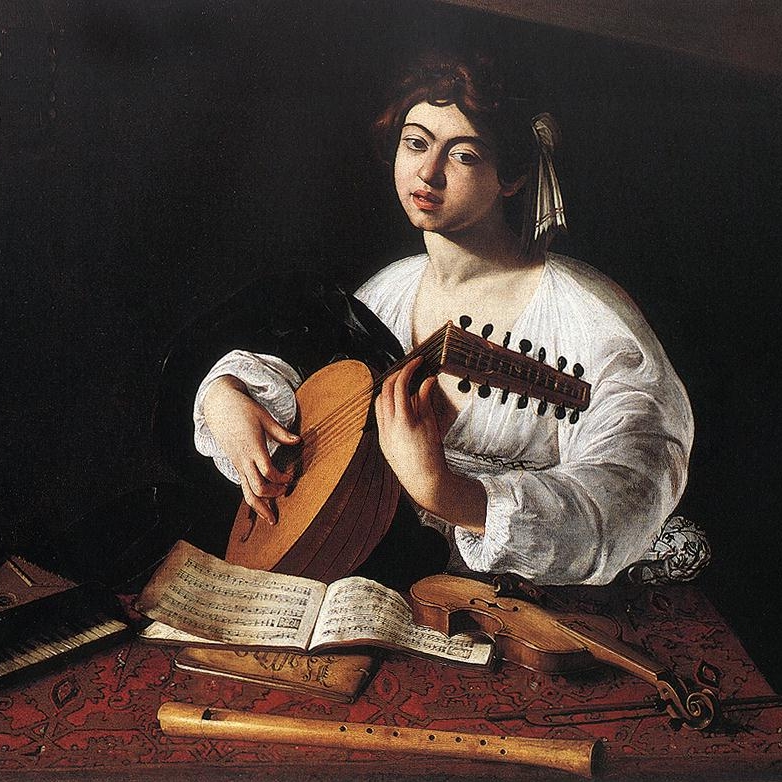In order to preserve the historical integrity of the ballads in this section they are presented in their original dialects, which span a broad range. These ballads have been passed down through the centuries from many different regions of Great Britain before appearing in print. A synopsis of each ballad, in modern American English, is provided to aid in ease of comprehension of the dialects.
True Thomas lay oer yond grassy bank,
And he beheld a ladie gay,
A ladie that was brisk and bold,
Come riding oer the fernie brae.
Her skirt was of the grass-green silk,
Her mantel of the velvet fine,
At ilka tett of her horse's mane,
Hung fifty silver bells and nine.
True Thomas he took off his hat,
And bowed him low down till his knee:
"All hail, thou mighty Queen of Heaven!
For your peer on earth I never did see."
"O no, O no, True Thomas," she says,
"That name does not belong to me;
I am but the queen of fair Elfland,
And I'm come here for to visit thee.
"But ye maun go wi me now, Thomas,
True Thomas, ye maun go wi me,
For ye maun serve me seven years,
Thro weel or wae as may chance to be."
She turned about her milk-white steed,
And took True Thomas up behind,
And aye wheneer her bridle rang,
The steed flew swifter than the wind.
For forty days and forty nights
He wade thro red blude to the knee,
And he saw neither sun nor moon,
But heard the roaring of the sea.
O they rade on, and further on,
Until they came to a garden green:
"Light down, light down, ye ladie free,
Some of that fruit let me pull to thee."
"O no, O no, True Thomas," she says,
"That fruit maun not be touched by thee,
For a' the plagues that are in hell
Light on the fruit of this countrie.
"But I have a loaf here in my lap,
Likewise a bottle of claret wine,
And now ere we go farther on,
We'll rest a while, and ye may dine."
When he had eaten and drunk his fill,
"Lay down your head upon my knee,"
The lady sayd, "ere we climb yon hill,
And I will show you fairlies three.
"O see not ye yon narrow road,
So thick beset wi thorns and briers?
That is the path of righteousness,
Tho after it but few enquires.
"And see not ye that braid braid road,
That lies across yon lillie leven?
That is the path of wickedness,
Tho some call it the road to heaven.
"And see ye that bonny road,
Which winds abou tthe fernie brae?
That is the road to fair Elfland,
Where you and I this night maun gae.
"But Thomas, ye maun hold your tongue,
Whatever you may hear or see,
For gin ae word you should chance to speak
You will neer get back to your ain countrie."
He has gotten a coat of the even cloth,
And a pair of shoes of velvet green,
And till seven years were past and gone
True Thomas on earth was never seen.
The ballad Thomas Rhymer appears in Volume I of The English and Scottish Popular Ballads, edited by Francis James Child. These volumes are in the public domain.

The Child Ballads are 305 traditional ballads from England and Scotland, and their American variants, anthologized by Francis James Child during the second half of the 19th century. ... Read more at Wikipedia.

Ballads were particularly characteristic of the popular poetry and song of the British Isles from the later medieval period until the 19th century. ... Read more at Wikipedia.